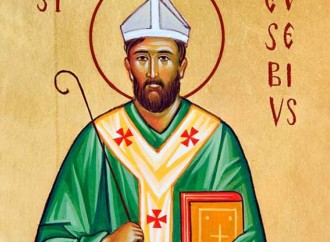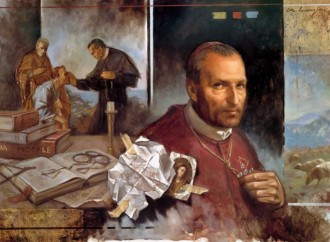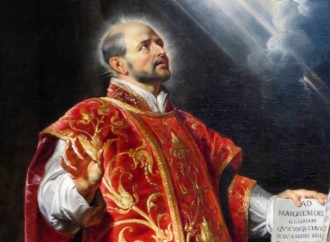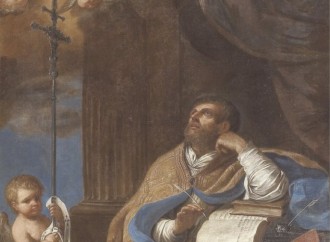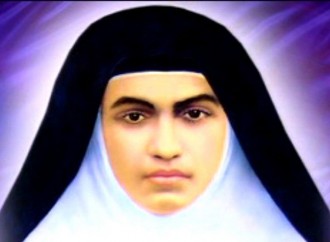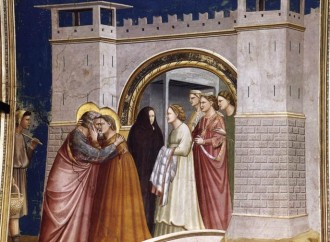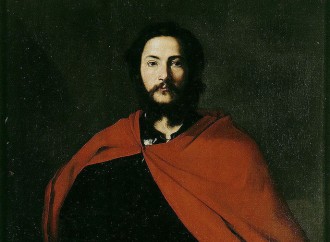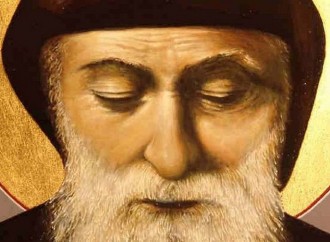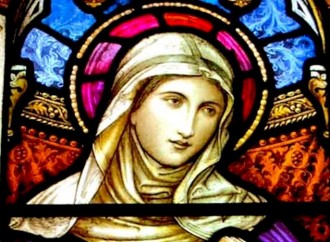Saint Eusebius of Vercelli
While Constantius II used every means to impose Aryan heresy throughout the Roman Empire, Saint Eusebius of Vercelli (end of the 3rd century - 371) was one of the few bishops to defend strenuously, at the cost of persecution, the righteous faith in the Son of God “begotten, not created, of the same substance as the Father”, as had been solemnly confirmed by the Nicene Creed.
Saint Alphonsus Maria de’ Liguori
A distinguished moral theologian, composer of famous melodies in Neapolitan and Italian (including the Christmas carol “Tu scendi dalle stelle”), able to speak of the truths of faith to both learned and simple people, author of over a hundred works, some of which have been translated into more than 70 languages.
Saint Ignatius of Loyola
Before choosing holiness and consecrating his life to the greater glory of God, Saint Ignatius of Loyola (1491-1556) had had a rather turbulent youth. The great protagonist of the Catholic Reformation was the last of 13 children of a couple of the high Spanish nobility, who had baptized him with the name of Iñigo.
Saint Peter Chrysologus
The nickname of Chrysologus, Greek term for “golden word”, was deserved for the eloquence with which he set out the truths of faith. Allegedly it was given to him by the Empress Galla Placidia (daughter of Theodosius I, one of the three emperors who had jointly issued the Edict of Thessalonica), a fervent Christian and central figure in the history of the 5th century....
Saint Martha of Bethany
Bethany is two to three kilometres from Jerusalem and is known because Jesus passed through there several times during His public life. It was the village of Lazarus (hence the name given to it by the Arabs, al-Azariya, which means “of Lazarus”) and of his two sisters Mary and Martha.
Saint Alphonsa of the Immaculate Conception
“I feel that the Lord has destined me to be an oblation, a sacrifice of suffering... I consider the day I have not suffered a lost day for me,” said Saint Alphonsa of the Immaculate Conception (1910-1946), a native of a village in the state of Kerala, India.
Saint Pantaleon
Saint Pantaleon is one of the most famous figures to have witnessed to his faith in Christ with his martyrdom during the Great Persecution (303-305). He is the patron saint of midwives and co-patron of doctors together with the famous Cosmas and Damian.
Saints Anne and Joachim
Today the Church jointly celebrates Saints Anne and Joachim, parents of the Virgin Mary and therefore elected instruments in God's plan of salvation. Their story is not told in the canonical Gospels, but appears for the first time in the apocryphal Proto Gospel of James, a text written in the middle of the second century and with Gnostic accents.
Saint James the Greater
Saint James, called the Greater to distinguish him from the apostle of the same name (James, son of Alphaeus), was the first of the Twelve to bear witness to Christ through martyrdom. Son of Zebedee and Salome, one of the pious women who followed Our Lord on Calvary, he was the brother of St. John the Evangelist.
Saint Charbel Makhlouf
The great Lebanese miracle worker and hermit Saint Charbel Makhlouf (1828-1898) was the fifth child of two peasants, who named him Youssef Antoun (Joseph Anthony). His father died when he was only three years old. His mother remarried two years later to a very pious man who directed him in daily prayer....
Saint Bridget of Sweden
On 1 October 1999, she was proclaimed by John Paul II Co-Patroness of Europe, for good reason. Saint Bridget of Sweden (1303-1373) is in fact one of those models of holiness capable of containing multiple vocations, which make her one of the richest and most luminous figures of the 14th century as well as a constant spur towards Christian perfection.
Saint Mary Magdalene
“They have taken away my Lord, and I know not where they have laid Him” (John 20:13). Together with her tears, these words that Mary Magdalene, the first to run to the tomb on the day of the Resurrection, uttered before the two angels in white robes remind us what a conversion this extraordinary saint lived through.
